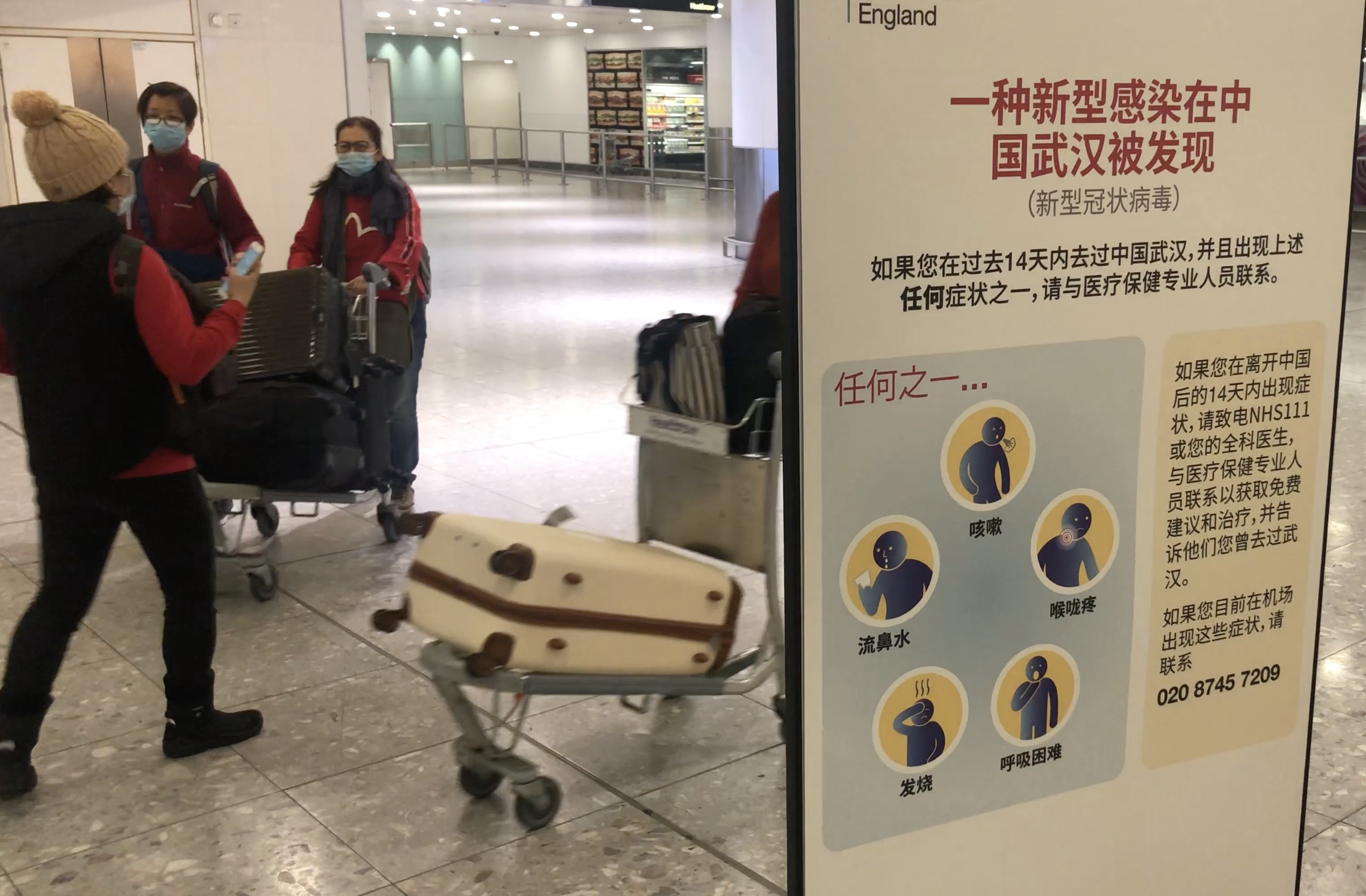This website uses cookies so that we can provide you with the best user experience possible. Cookie information is stored in your browser and performs functions such as recognising you when you return to our website and helping our team to understand which sections of the website you find most interesting and useful.

“Backed by the science, supported by the public, and essential to save lives”: that was how Priti Patel ended her announcement to Parliament of the UK’s first-ever blanket quarantine law.
At one minute past midnight on Monday 8 June, the image of the returning traveller will transform from a weary-but-happy soul replete with snaps and stories into a “quarantinee”: a Covid-19 suspect ordered to self-isolate for 14 days.
Almost all arrivals at British air, sea and rail terminals must go straight to a suitable address and stay there for two weeks.
Dominic Cummings came up with the quarantine policy shortly after he returned from his stay in Durham.
The chief adviser’s cunning plan has been welcomed by an unusual alliance of the home and foreign secretaries plus their Labour counterparts.
At a time when a global pandemic is causing untold grief, especially in Britain, making people step from plane to prison-like incarceration is as popular with a significant slice of the public as it is with Ms Patel and the foreign secretary Dominic Raab.
Their respective shadows, Nick Thomas-Symonds and Lisa Nandy, have both welcomed the move – though they describe it as way too late.
The proponents have presumably concluded that the wholesale destruction of inbound and outbound tourism, as well as the crushed hopes and dreams of holidaymakers, is a price worth paying for reducing the spread of coronavirus.
After all, as the home secretary said, quarantine is “backed by the science” and “essential to save lives”.
Except it isn’t, and it won’t.
As the chief scientific adviser, Sir Patrick Vallance, made abundantly clear at the subsequent Downing Street briefing, a blanket quarantine policy is appropriate only when a country with a low infection rate is faced with people coming in from many nations with worse records.
“Measures like this are most effective when the number of cases is very low, and they’re most effective when they’re applied to countries from higher rates,” he said.
We live in a high-infection kingdom surrounded by many low-infection nations. Statistically, you have far more chance of contracting the virus from a fellow Brit than from a resident of the European Union.
So the best way to cut the rise in UK infections, and the deaths that inevitably follow, is to encourage as much international tourism with the EU as possible.
Bluntly, to limit the unfolding Covid-19 tragedy in the UK, the more of us who go on holiday the better. If 10 million of us were allowed to leave this summer, the number of coronavirus cases in the UK would fall.
A straight population swap for the same number of Europeans (“if only”, the inbound travel industry will chorus) would lower the overall risk.
Created with Sketch.
Created with Sketch.
1/11 Ben Gurion International airport, Israel
Reuters
2/11 Daxing International Airport, Beijing
AFP via Getty
3/11 Taoyuan International Airport, Taiwan
EPA
4/11 Noi Bai International Airport, Vietnam
AFP via Getty
5/11 Haneda Airport, Tokyo
Reuters
6/11 Changsha Huanghua International Airport, China
Reuters
7/11 Shanghai Pudong Airport in Shanghai, China
EPA
8/11 Daxing International Airport, Beijing
AFP via Getty
9/11 Haneda Airport, Tokyo
Reuters
10/11 Shanghai Pudong Airport in Shanghai, China
EPA
11/11 Noi Bai International Airport, Vietnam
AFP via Getty
1/11 Ben Gurion International airport, Israel
Reuters
2/11 Daxing International Airport, Beijing
AFP via Getty
3/11 Taoyuan International Airport, Taiwan
EPA
4/11 Noi Bai International Airport, Vietnam
AFP via Getty
5/11 Haneda Airport, Tokyo
Reuters
6/11 Changsha Huanghua International Airport, China
Reuters
7/11 Shanghai Pudong Airport in Shanghai, China
EPA
8/11 Daxing International Airport, Beijing
AFP via Getty
9/11 Haneda Airport, Tokyo
Reuters
10/11 Shanghai Pudong Airport in Shanghai, China
EPA
11/11 Noi Bai International Airport, Vietnam
AFP via Getty
Exporting our problem has alarming implications for the destination countries.
They will have to strike their own balance between the economic benefits that British visitors can bestow and the risk that large numbers of incomers from a high-infection nation implies.
That is their decision. The interests of UK citizens are best served by allowing us the freedom to travel.
Abandoning quarantine so that the British can travel abroad is backed by the science and essential to save lives.
The government’s message should be stay alert; control the virus; go on holiday.



 Africana55 Radio
Africana55 Radio 

